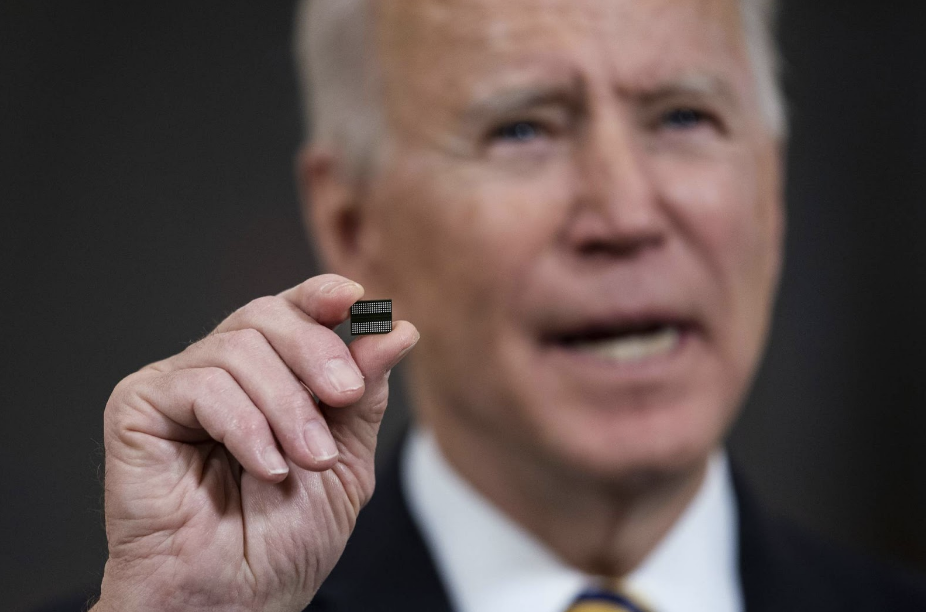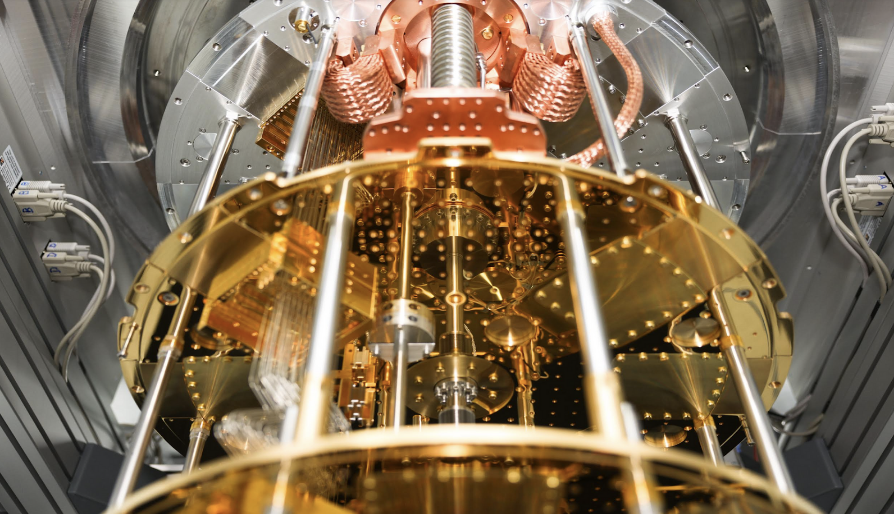China’s Quantum Computing Research Faces Sweeping Challenges from US Export Rules
US President Joe Biden holding a semiconductor chip at White House in 2021. Photo: Doug Mills/New York Times.
The Biden administration announced extensive new export rules on the sale of semiconductor technologies to China on Friday, escalating tensions in the technology race between the US and China.
The new wave of rules bans companies from selling advanced computer chips used in AI or supercomputing produced using US technology or machinery to China. Additionally, US companies are now banned from selling chip-producing machinery to China without a license and shipment of chips used for supercomputer systems to China will be banned.
Mounting concern over China’s intentions to develop supercomputers and other sophisticated technologies motivated Biden to impose these new restrictions. In recent years China’s technological development sector has blended into the defense sector. Supercomputing technology can strengthen the Chinese military by aiding weapon development, hacking capability for espionage and AI surveillance capabilities for citizens.
Biden’s new rules will seriously impact Chinese quantum computer development, a type of computer with more computing power than classical supercomputers. Nations seek to use quantum computing for a few important functions: predicting complicated chemical reactions, developing new medicines especially for genetic conditions, and hacking through standard data encryption used by most businesses and governments.
Baidu Inc., a Chinese internet corporation, developed a 10-qubit quantum computer this year to catch up in the global race for quantum development. Quantum computers transcend laws of regular physics, using qubits that can enter quantum entanglement and exist as 0 and 1 simultaneously, whereas regular computer bits that can exist only as 0 or 1 exclusively. As a result, quantum computers can solve complex problems that would take classical computers thousands to millions of years to solve in a matter of seconds.
Photo of Baidu’s 10 qubit quantum computer. Courtesy of Wall Street Journal. Photo:Baidu Inc.
China joined the race for quantum computing relatively late compared to the US, France, and India, yet it is rapidly catching up despite challenges posed by the United States. Edward Snowden’s revelation that the US hacked deep into China’s internet in 2013 motivated China to double down on developing the strongest possible encryption capabilities using quantum technologies.
Last year the US banned the export of high-tech equipment to Chinese labs suspected of developing quantum computers as Washington grew concerned about what China planned to use quantum computing for. The US also made it difficult for Chinese students to obtain visas to conduct quantum research in the US.
Chinese foreign ministry spokesperson Mao Ning called out the US for using Biden’s most recent restrictions to abuse trade measures and maintain a “technological hegemony.” The consequences of these regulations on Chinese tech research prove pervasive as most memory chips and semiconductors used for AI technology, supercomputing, and quantum computer development are created by US companies. Developers specifically depend on silicon chips and semiconductors for the physical construction of quantum computers.
Many experts believe China’s quantum computing research benefits global advances and that hindering their development poses consequences to the field. American scientists collaborate with Chinese scientists on quantum research the most out of any other country. Biden’s new export rules, combined with past US tech export restrictions against China, will slow quantum research and development collaboration between the two nations.
The Chinese firm Baidu plans to release a 36-qubit quantum computer by next year. Faced with Biden’s new export rules, their goal of catching up with the American tech giant IBM’s 127 qubit quantum computer may take longer to achieve than expected. Nonetheless, the race for further quantum computing development is on between the two nations.


